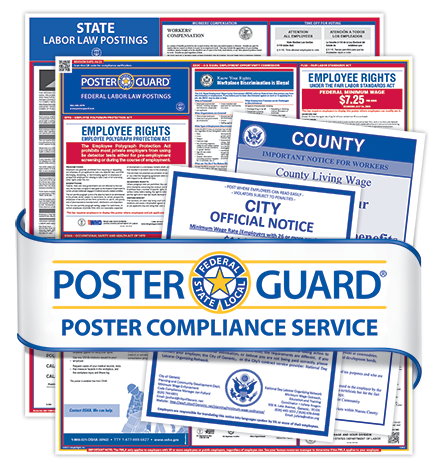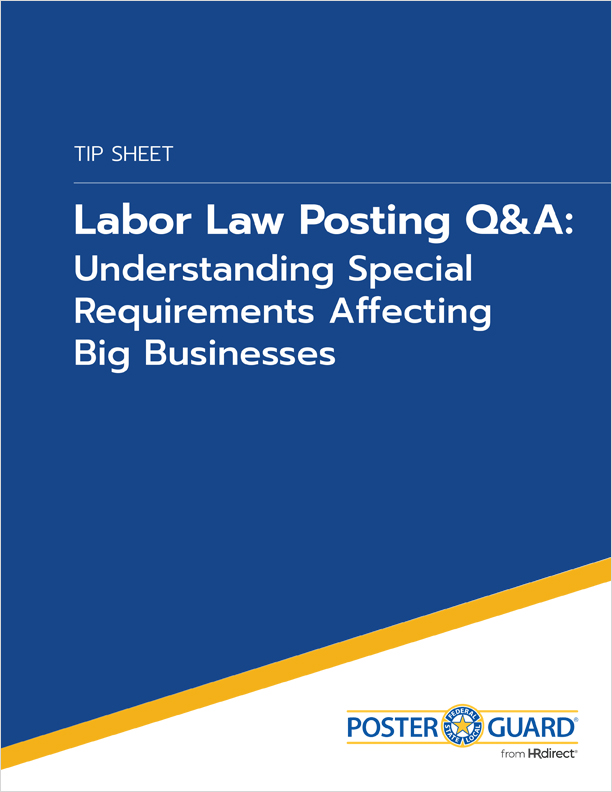Are you aware of the rise in wage theft among U.S. employers? When you overlook critical time and pay requirements or cut corners with compensation, you run the risk of employee complaints, violations and even lawsuits.
In general, wage theft occurs when you don’t pay your employees what they’re rightfully owed. This can happen in a few different ways: failure to pay minimum wage or overtime, misclassifying salaried employees as “exempt,” taking illegal deductions, expecting employees to work off the clock, taking workers’ tips or denying pay altogether. Most of these actions are clear violations of the Fair Labor Standards Act (FLSA), the “wage and hour” law designed to protect workers.
The number of court cases, on both a state and national level, underscore the prevalence of wage theft — and the high price employers pay for wage and hour noncompliance. In 2019, more than 6,700 lawsuits were filed under the FLSA, outpacing all other employment-related complaints. The top 10 settlements amounted to a staggering $449 million, involving such violations and penalties as:
- $100 million for failure to provide state-mandated meal and rest breaks to security officers (Lubin v. Wackenhut)
- $100 million for misclassifying drivers as independent contractors and denying them wages and expense reimbursement (Van Dusen v. Swift Transportation)
- $35 million for failure to pay overtime to bank tellers (Merino v. Wells Fargo & Co.)
- $26 million for not paying proper wages to fast-food workers (Sanchez v. McDonald's Restaurants of California)
As workers become more knowledgeable of their rights under the FLSA, it’s vital that businesses maintain strict compliance with all time and pay rules to avoid costly legal issues.
‘Wage theft’ refers to violations of wage and hour requirements, an issue the Department of Labor and IRS are cracking down on.
How to Prevent Wage Theft
Don’t put your business at risk of the common, but completely preventable, FLSA violations. To avoid the accusation of wage theft and possible penalties, be certain to:
- Pay at least the minimum wage, as well as overtime pay of time-and-a-half for 40+ hours in a workweek — Even if overtime is never required in your business, you must track hours worked for all non-exempt employees. Without these records, you have no defense if an employee claims unpaid overtime.
- Check your state and local minimum wages —While the federal minimum wage has remained at $7.25/hr. since 2009, more than 75 states, cities and counties passed their own, higher minimum wages in 2019 alone. Whenever the minimum wage varies at one of these levels, you must pay the amount most beneficial to the employee.
- Pay non-exempt (hourly) workers for all hours worked — Whether the work is done at the office, during a commute or at home, non-exempt employees must be paid for their time. And they should never be asked to work “off the clock.”
- Completely relieve employees of all duties during 30-minute meal breaks so they can take them uninterrupted — In addition, have a process for overriding automatic deductions for any situations where non-exempt employees skip breaks or are forced to cut their breaks short.
- Verify that “exempt” workers who are paid on a salary basis are classified appropriately — A minimum salary ($684/week or $35,568/year) is only one requirement for employees to be exempt from overtime under the FLSA. These employees must also meet specific criteria with job duties tests, typically for executive, administrative and professional employees.
- Know the difference between independent contractors and employees for proper legal classification — Based on various DOL and IRS tests, an independent contractor (such as a freelancer or consultant) is responsible for delivering a certain result, and has control over what and how to do it. Don’t attempt to avoid paying payroll taxes, workers compensation or unemployment taxes by misclassifying an employee as an independent contractor.
- Distribute any state-specific employee handouts covering wage theft — Certain states have passed wage theft laws that require specific notifications for employees, including California, Minnesota and New York.
Easily Manage Newly Required Employee Handouts (and Postings)
Get electronic access to the latest federal, state and local employee notifications — including wage theft notices — with the Mandatory Employee Handout Service. Managing these handouts is easy because you receive timely email alerts informing you of mandatory updates, as well as online instructions to pinpoint which handouts to use and when.
For 365 days of federal, state and local posting compliance, rely on the industry-leading labor law poster service, Poster Guard® Compliance Protection. Coverage includes all required labor law postings, automatic replacements at no additional charge, a 100% Compliance Guarantee against posting fines, and continual legal monitoring and expertise.



